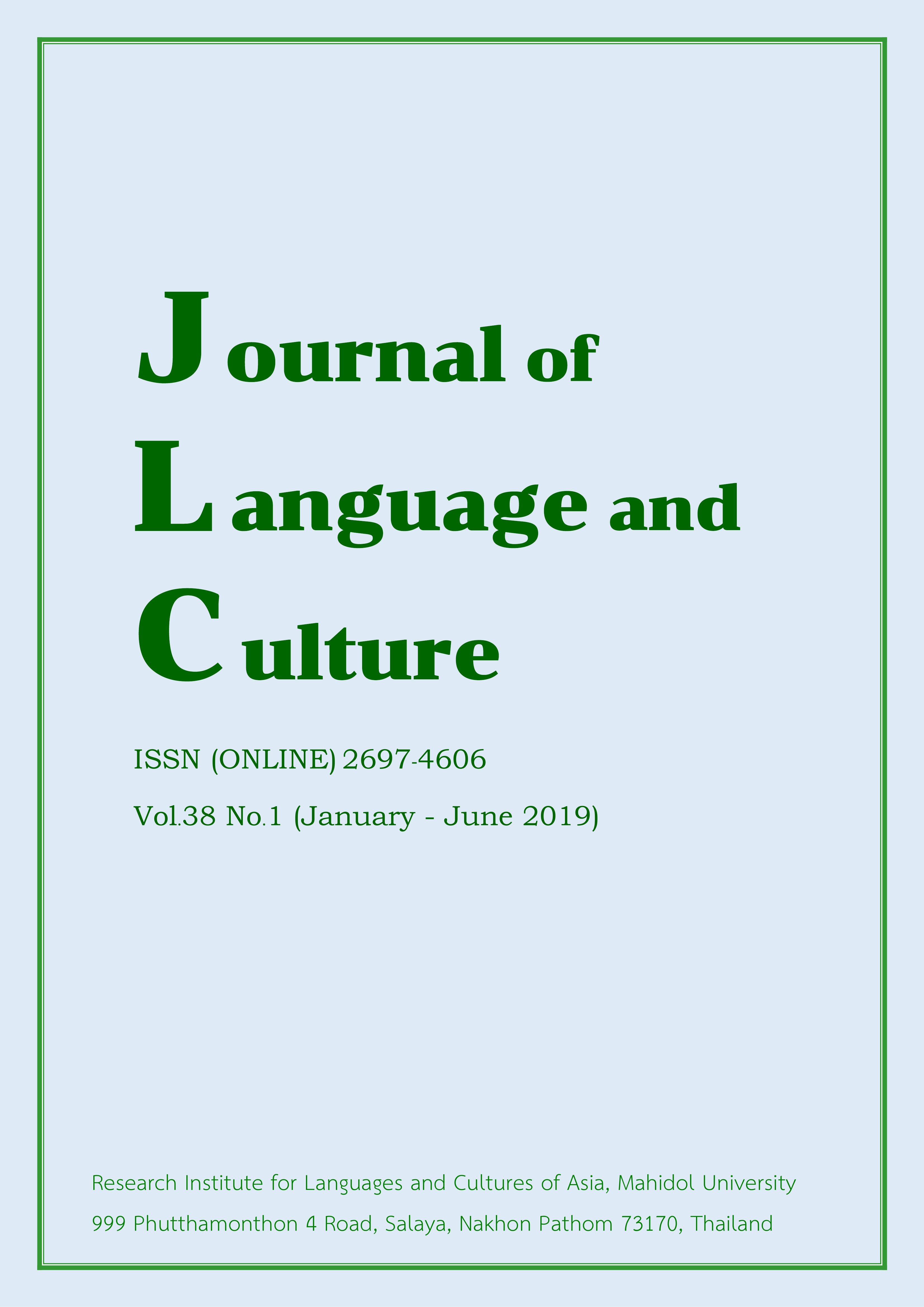The study of cross-cultural viewpoints through the usage of the words for“Ogre”: A case study of Juusanya by Higuchi Ichiyo
Main Article Content
Abstract
The objectives of this paper were; 1) to study the meanings of the word for “ogre” which appears in Juusanya by Higuchi Ichiyo; and 2) to compare them with the meanings of the Thai equivalent in Thai works. Focusing on the cross-cultural differences, this research found that Higuchi Ichiyo uses “ogre” metaphorically to describe the negative traits of the male and female characters. Oseki, the wife, uses the word to describe Harada Isamu, her husband, because he has verbally abused her for years. She also uses “ogre” to describe herself when considering getting a divorce and leaving her little son with her husband, which would be considered unacceptable and a failure to perform her duties as a woman, wife and mother in a patriarchal society.
On the other hand, it was found that the word “orge”, is not used figuratively to describe characters in Thai literature as it is in Higuchi’s work. Furthermore the use of the word “ogre” with a female character in both Higuchi`s work and Thai literature reflects “resistance to masculine power” in societies still strongly influenced by patriarchy.
Article Details
The articles featured in the Journal of Language and Culture (JLC) constitute academic works representing the viewpoints of the respective author(s). It is crucial to note that these opinions do not necessarily reflect those of the Editorial Board.
All articles published in JLC are released under the Creative Commons Attribution 4.0 International License (CC BY 4.0). This license grants permission for unrestricted use, distribution, and reproduction in any medium, provided proper credit is given to the original author(s) and the source.


